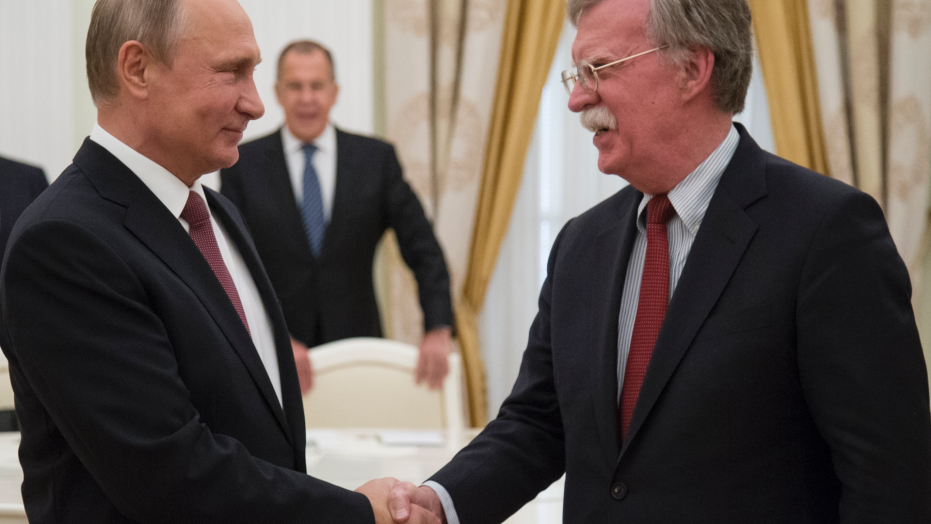Special to WorldTribune.com
There are haunting echoes in the meeting Presidential National Security Advisor John Bolton has just completed in Moscow.
In another era, now just a hundred years ago, the U.S. and its Western allies made a deal with Moscow to oppose an even more threatening enemy, Nazi Germany and its growing rabble of fascist allies including Italy. That gave the Europeans and the Americans a short period of a phony war. But it was not to last.

Just as then, setting up a meeting between the leaders, this time President Donald Trump and Russian Dictator Vladimir Putin, it was a bitter compromise, swallowed with difficulty. Putin is no Josef Stalin, then Soviet absolute ruler the like of which the world had not seen. But Putin’s combination of political thuggery, he is after all is a graduate of the KGB, the Soviet/Russian secret police — including murder of political opponents — is not the only reminder.
Bolton said in the meeting he discussed “strategic stability in the world, control over nuclear weapons and, in general, a disarmament dossier.” A Russian spokesman said they also discussed the conflicts in Syria and Ukraine, North Korea, and the Iran nuclear deal. Neither Bolton nor the Kremlin said whether he and Putin discussed Russia’s fumbling in American elections. Nor did either spokesman broach the subject of sanctions or the diplomatic spat between the U.S. and Russia which brought them to any negotiation at all.
Washington swallowed hard, and despite mumbled protests from its European allies, made a deal to ignore for the moment Russian Putin’s grab of Crimea, his support of armed pro-Moscow dissidents in Eastern Ukraine, and growing threats to its former captured nations in the Baltic.
Nor did anyone point to the leading figure offstage where so much of this was aimed: the Chinese Communists whose growing ambitions in South Asia, the Middle East and Africa, pose a threat to both powers. But Beijing was very much a part of the international balance of power that was implied in any deal which may be coming out of a Putin-Trump Summit.
Dealing with Moscow meant Washington had to face the reality of an aggressor regime with an arsenal of weapons of mass destruction. And, until recently, Russia held a whip hand over the U.S. NATO allies in Europe by being a monopoly supplier of natural gas.
It’s a change here that may, if anything, offer hope of the U.S. coming to terms with Putin through his eroding economic weapon.
Its new shale technology has made the U.S. again, for the first time since before World War II, a net exporter of energy. That plus access to Central Asia reserves — no longer the property of a Soviet Union — through new pipelines being built through Turkey and the Balkans begin to erode the elements of Putin’s domestic claptrap regime.
Unlike his legendary forbear Stalin, he does not rule by terror alone, but through a combination of his own clever manipulation of an imitation of the Soviet bureaucracy and his alliance with oligarchic billionaires who have built their empires on the energy exports.
It remains to be seen if the steadily enlarging European markets can accommodate all these providers. If they cannot, Trump’s temporary accommodation against China with Putin could usher in a period of unshaken international stability. But that would require, too, American pressure to reduce its own growing dependence on Chinese imports and markets.
Sol W. Sanders, (solsanders@twc.com), is a contributing editor for WorldTribune.com and Geostrategy-Direct.com.

